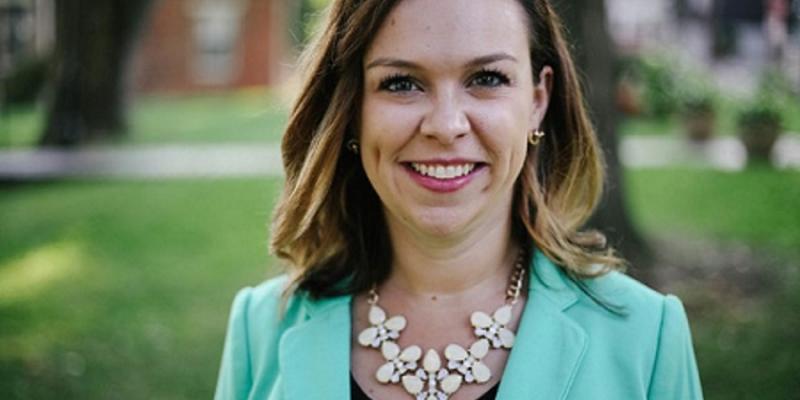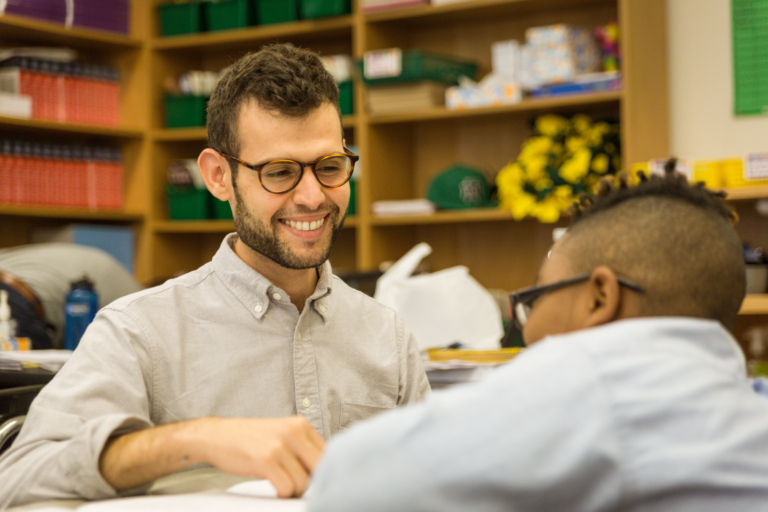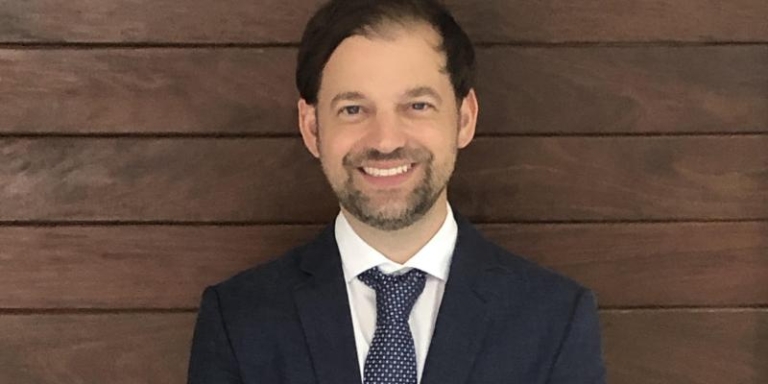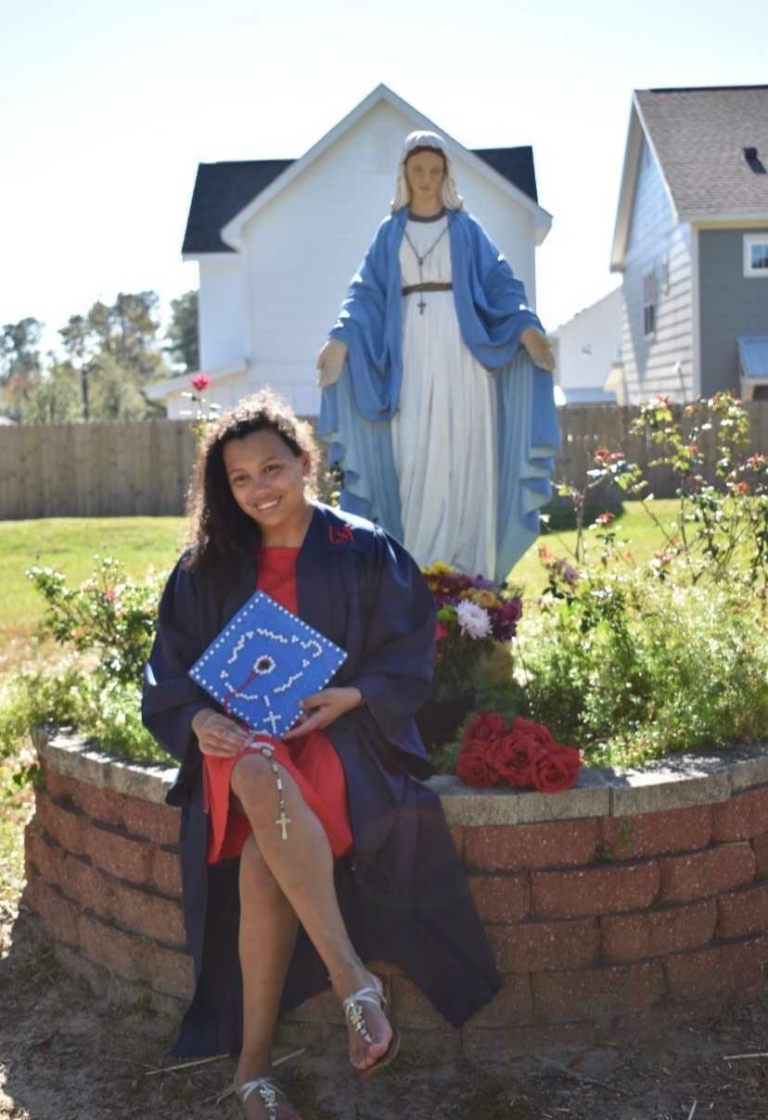Taking risks is never easy. But Emily Gilbride, Senior Manager of Blended Learning for Seton Education Partners, has found that it becomes easier if you believe in yourself and your abilities. It is easier still, she says, if you have faith that your God will guide you through any trials and tribulations along the way.
“I have cerebral palsy,” she says. “My parents were told when I was born that I was never going to walk. When I was two and a half, my grandmother prayed the rosary over my legs and I walked the next morning.”
Risk and hardship, meet faith.
“My grandma had enough faith to pray the rosary over my legs when nothing else was working. I think that knowing that, and knowing that even in the hardest times the Lord is there, gets me through a lot of things.”
The faith that guides Gilbride and her work is vital to helping her navigate the risks she encounters while helping blaze a trail to show what is possible for urban Catholic schools. By implementing a unique blended learning model for K-8 schools, Gilbride and her colleagues at Seton are working to revitalize a system that has seen more than 1,600 schools close since 2006.
Their work provides schools serving low-income populations with the fundraising, expertise, and technology to convert from a traditional educational model to a blended learning academy. Their initiative is much needed, but it comes with its challenges.
“This idea that we’re going to raise the money it takes to implement an intervention that we believe is going to improve academic performance and increase enrollment and, by the way, if it doesn’t, the future of the students we serve is on the line for it. . . it’s a huge risk,” says Jeff Kerscher, Director of the Seton Blended Network.
Seton’s willingness to take risks is paying off both in its blended learning initiative and its El Camino program, which adds an after-school faith formation component to a public Charter school. Both programs have been successful, with the former raising academic performance and increasing enrollment in all twelve of its schools and the latter bringing children and families to the Catholic Church in droves.
Kerscher continues, “We pursue our convictions knowing that the work we are doing is good and it’s what is required to get the outcomes our kids deserve.”
It also requires an unshakeable faith.
“I carry the rosary [my grandmother] used to pray over my legs in my purse every day,” Gilbride says. “I use it to pray the rosary every day. It’s a center point of my work and my life.”
Fortunately for Seton and the schools they serve, Gilbride is not the only one on her team whose faith gives her the strength to take the necessary risks to help her students succeed. The Seton staff pray together, attend yearly retreats, and are pushed to explore their faith lives more deeply.
At the same time, with such high stakes surrounding their work, Seton pays special attention to recruiting like-minded individuals committed to strengthening the Catholic school system. Gilbride and Kerscher admit it has been difficult to find the right personnel. They also acknowledge the work might not be for everyone. But they have found what seems like an unlikely source of talent.
“I have a team of four people, including me, and every one of us has come from Teach for America (TFA),” Gilbride says. “TFA has an effective screening process. They hire for a mindset and Seton benefits from that. We know that when we’re hiring people from the Corps, we don’t have to be concerned about finding people focused on doing whatever it takes to help our children.”
“We also know we’re getting people who are willing to take risks, and that’s something Catholic schools across the country need to thrive.”



